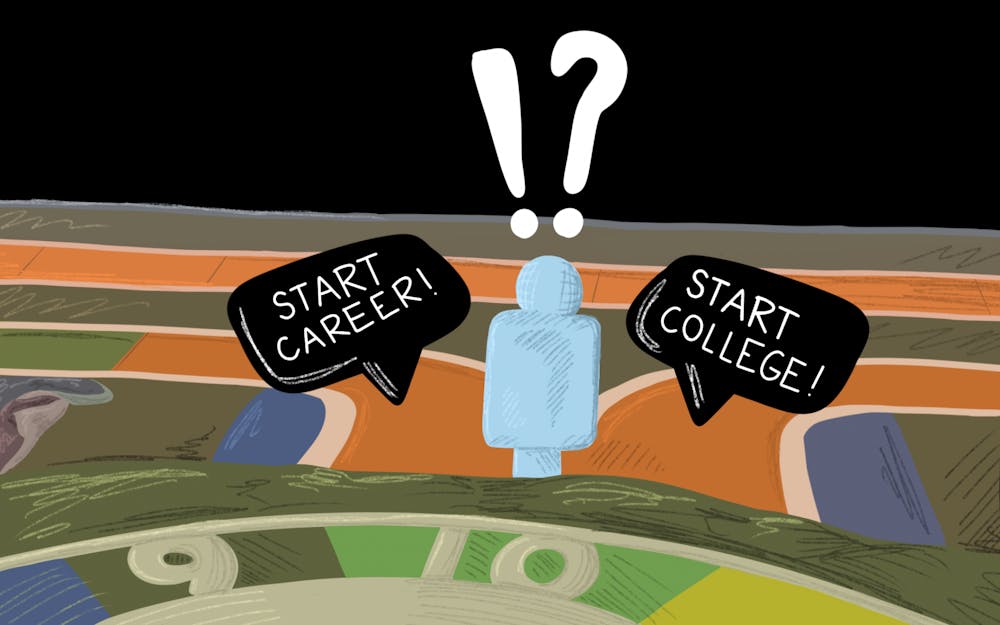I’m sure I’m not the only student who wasn’t truly given much of a choice when planning for the four years following high school graduation. From early in my teens, my parents instilled the plan of attending college. In their minds, there was no alternative path for me.
I don’t want to sound ungrateful. My parents encouraged me to pursue this path because they truly believed college to be in my best interest and I appreciate it. In my time here, I’ve made some lifelong friends, encountered great opportunities which allowed me to explore some latent interests and given me experiences that I will not soon forget.
However, through my studies and other experiences while enrolled, I have also had the opportunity to see the broader landscape of the college experience, not only through the eyes of a student, but from a more analytical perspective as well.
I study political science and economics, and within these disciplines I focus on the statistical and computational aspects of understanding complex social and political issues. Basically, I spend the majority of my week looking at long data sets and formulating them into graphs. One area we have focused on specifically in my economics class is post-graduate annual earnings.
To give you a quick run down, this data was gathered from the Education Data Initiative and the National Association of Colleges and Employers.
While the average starting salary for a college graduate with a bachelor's degree has not varied, the cost of attendance and the subsequent student loan debt these graduates incur has skyrocketed. The average starting salary for graduates has even dropped 5.7% from 1970 to 2020 while the average cost of tuition has increased 283% and average student loan debt has also shot up by 322%.
The bottom line? The average college graduate is not the commodity they once were. If you do a simple comparison between the investment college requires with the expected starting salary, it’s clear that employers don’t value a college degree as much as they did previously.
Many of my friends are double majoring, going into graduate school, or completing supplemental certification just to stay competitive. One of my friends is even triple majoring with four minors and planning on going to law school later this fall.
Coupled with the climbing rates of student depression and anxiety, students are faltering under the current stress of keeping up with school, not to mention learning throughout a global pandemic, climate crisis and now increased international relation turmoil.
So what needs to change? A lot, but it’s complicated.
Given the current U.S. political landscape and presidential administration, hopes of our government canceling or even alleviating chunks of federal student loan debt are higher than they have been in recent decades. Even though it may not seem like President Joe Biden has adequately addressed the issue within his first year in office, he is still able to ask Congress to push a bill through or institute the change himself via an executive order.
Related: [OPINION: Unrealistic workout expectations are not feasible for everyone]
This could be a while though, so until then parents need to take a step back, assess the current landscape and have an honest conversation with their children. Stop coercing them into believing college is the only path to a financially fruitful future.
Yes, your generation may have been able to “work your way through college,” but if you paid more attention in your undergraduate microeconomics class, you would understand the true financial strain of attaining a bachelor's degree in today’s economy. It’s cool that you were able to pay for college working a fast-food job, but now most individuals can’t even support themselves doing the same. Times change, and so must we.
Parents need to get out of the way and understand that what may have worked for them may not work the same for their children. They need to keep an open mind and not reject any option outright until thoroughly considering its potential benefit for their child.
Sean Gilley (he/him) is a senior studying political science and economics with a certificate in informatics.




